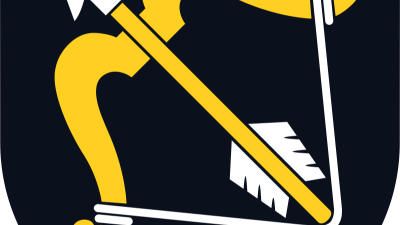The LEC develops production of the educational contents to the next level by encouraging pupils, teachers and teacher-students to create educational contents in cooperation with local stakeholders. The LEC focuses on creating educational contents in the context of a rural area and distributing them among educators using the latest achievements of information and communication technology.
The overall co-creation process consists of seven interlinked activities:
1) Children’s science articles,
2) Online Science Education Training,
3) Pedagogical videos and ideas,
4) Science Teacher Training,
5) Open educational contents,
6) Virtual Science Teacher Training and Workshops,
7) Virtual and physical science clubs
8) Physical science clubs for families.
The overall co-creation process consists of seven interlinked activities:
1) Children’s science articles,
2) Online Science Education Training,
3) Pedagogical videos and ideas,
4) Science Teacher Training,
5) Open educational contents,
6) Virtual Science Teacher Training and Workshops,
7) Virtual and physical science clubs
8) Physical science clubs for families.
Finland is one of the most rural countries in Europe and its population is highly dispersed. The long distances have affected the local environments by creating local cultures with heterogeneous and unique social structures. However, this has led to a reduction in learning equality in different areas.
The LEC finds ways to counter the regional inequalities in science, mathematics and literacy. The LEC approaches these three areas with the primary goal of strengthening children‘s science literacy via STEAM activities arranged by the school communities (pupils, teachers, teacher-students, school heads and parents) and supported by stakeholders (science journalists, researchers and educational experts).
Teachers, teacher-students, researchers, experts, science journalists and children will cooperate and learn from each other while co-creating inspiring science education articles and videos. Supported by educational technology experts, the LEC will publish the educational contents and the related pedagogical ideas on two digital platforms (Children’s University Digital World and the Emill service) where the contents are openly accessible to educators and children. The created contents will benefit schools, but they also support out-of-school science clubs and teacher training.
The sustainable future of learning requires us to stay involved in the modern age. The use of digital tools and cooperation between organizations helps us respond to the development of the learning crisis.
Snellman EDU’s Children University
Niko Kyllönen / SnellmanEDU
Juha Parkkisenniemi / Kuopio City School
Administration: Growth and Learning Committee
Antti Jokikokko / Siilinjärvi Municipality School
Administration: The Education and Welfare Committee
Kirsi-Tiina Ikonen / Iisalmi City School Administration: The Local Education and Culture Committee
Sirpa Kärkkäinen / University of Eastern Finland
Kari Sormunen / University of Eastern Finland
Eliisa Vähä / University of Eastern Finland
Ville Tahvanainen / University of Eastern Finland
Niko Kyllönen / University of Eastern Finland
Ville Saviluoto / University of Eastern Finland
Matti Laitinen / Business Center North Savo / Savonia University of Applied Sciences
Anu Parviainen / Kuopio City Library
Sanna Reinikainen / Kuopio Museum
Jari Mäkinen / Tiedetuubi
Maj-Britt Kentz / Ilona IT
Aleksi Komu / ThingLink
Johanna Ketola / Young Academy Finland
Katja Kujanpää / Young Academy Finland
Tanja Hintikka / Kasurila School
Marja Rytivaara / Toivala School
Markus Jauhiainen / Vuorela School
Tuukka Kokkonen / Jynkkä School
Harri Helin / Pyörö School
Annukka Lindström / Pyörö School
Juha Parkkisenniemi / Kuopio City School
Administration: Growth and Learning Committee
Antti Jokikokko / Siilinjärvi Municipality School
Administration: The Education and Welfare Committee
Kirsi-Tiina Ikonen / Iisalmi City School Administration: The Local Education and Culture Committee
Sirpa Kärkkäinen / University of Eastern Finland
Kari Sormunen / University of Eastern Finland
Eliisa Vähä / University of Eastern Finland
Ville Tahvanainen / University of Eastern Finland
Niko Kyllönen / University of Eastern Finland
Ville Saviluoto / University of Eastern Finland
Matti Laitinen / Business Center North Savo / Savonia University of Applied Sciences
Anu Parviainen / Kuopio City Library
Sanna Reinikainen / Kuopio Museum
Jari Mäkinen / Tiedetuubi
Maj-Britt Kentz / Ilona IT
Aleksi Komu / ThingLink
Johanna Ketola / Young Academy Finland
Katja Kujanpää / Young Academy Finland
Tanja Hintikka / Kasurila School
Marja Rytivaara / Toivala School
Markus Jauhiainen / Vuorela School
Tuukka Kokkonen / Jynkkä School
Harri Helin / Pyörö School
Annukka Lindström / Pyörö School
SnellmanEDU
Kuopio City School Administration: Growth and Learning Committee
Siilinjärvi Municipality School Administration: The Education and Welfare Committee
Iisalmi City School Administration: The Local Education and Culture Committee
University of Eastern Finland
Business Center North Savo / Savonia University of Applied Sciences
Kuopio City Library
Kuopio Museum
Tiedetuubi
Ilona IT
ThingLink
Young Academy Finland
Kasurila School
Toivala School
Vuorela School
Jynkkä School
Pyörö School
Kuopio City School Administration: Growth and Learning Committee
Siilinjärvi Municipality School Administration: The Education and Welfare Committee
Iisalmi City School Administration: The Local Education and Culture Committee
University of Eastern Finland
Business Center North Savo / Savonia University of Applied Sciences
Kuopio City Library
Kuopio Museum
Tiedetuubi
Ilona IT
ThingLink
Young Academy Finland
Kasurila School
Toivala School
Vuorela School
Jynkkä School
Pyörö School

